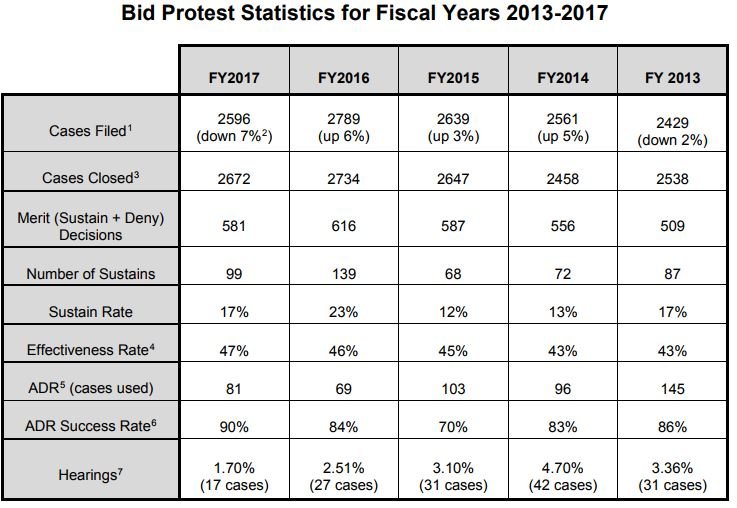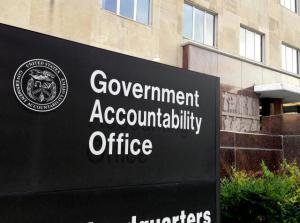

GAO wrote a blunt assessment of its decision to ban Latvian Connection from filing complaints for two years.
A lesson for government contractors: Don’t mess with the Government Accountability Office. When it suspends you for a year for submitting frivolous protests and then lifts your suspension, it doesn’t take long for GAO’s lawyers to lose their patience if you continue to submit what they believe are superfluous protests.
That is the lesson Latvian Connection now is facing.
GAO suspended Latvian Connection for two years for its continued efforts to change the federal procurement process by submitting bid protests. The agency first suspended Latvian in August 2016 and lifted the ban a year later.
And in the first month since GAO lifted the suspension, Latvian Connection filed 10 new protests. The continued frivolousness and aggressive tone of the filings pushed GAO to make this decision.
If you haven’t read GAO General Counsel Susan Poling’s Nov. 29 missive, detailing with an unusual candidness the agency’s decision to forbid Latvian Connection from petitioning them with bid protests, then you should.
“Despite the prior suspension, and despite our Aug. 18 letter, Latvian Connection’s request for reconsideration, as well as its underlying protest and other recent filings, exhibit the same pattern of the abusive litigation practices that previously led our office to suspend Latvian Connection,” Poling wrote. “These practices include filing protests that are either untimely or fail to demonstrate that Latvian Connection is an interested party to pursue the protests (or both), and submitting pleadings that fail to engage or address the responses prepared by procuring agencies to explain their actions or dismissal requests. Latvian Connection’s pleadings are incoherent, irrelevant, derogatory and abusive.”
What stands out in GAO’s decision is just how incoherent and abusive Latvian’s filings are.
“For instance, in response to the Air Force’s request for dismissal of the protest underlying this reconsideration request, Latvian Connection filed a 28‑page statement containing dozens of excerpts, tables, computer screenshots, and pictures, interspersed with commentary (often derogatory) from the protester,” GAO wrote. “The statement is presented in a confusing array of text sizes, fonts, highlighting, and varying margins, rendering it unintelligible.”
GAO says Latvian accuses agency lawyers of “covering up” for the government’s wrongdoings and goes further by threatening to file complaints with oversight authorities.
“Latvian Connection alleges, without any substantiation, that GAO is covering up white-collar criminal activity by DoD and the Air Force. In addition, in protest B‑425353.4, there were several links to internet videos published by Latvian Connection’s CEO. These videos are profane, inappropriate, and threatening,” GAO writes. “In fact, Latvian Connection routinely threatens to publish videos disparaging agency and GAO officials, or threatens to file complaints against them to state bar officials or agency inspectors general, whenever the protester disagrees with a potential procedural or final decision. Despite Latvian Connection’s apparent belief, such threats will not result in a different answer from our office. Our forum is not required to tolerate threats, profanity, and such baseless and abusive accusations.”
As much as the suspension is about abusive and nonsensical protests, it’s also about the impact on GAO’s resources. Latvian Connection filed more than 500 protests over the previous few years before being suspended. So when GAO only receives about 2,700 protests a year, and 5-to-8 percent are from one company that fails to meet community standards, the agency is left with little choice but to find a way to change Latvian’s behavior.
“Latvian Connection has continued to routinely and repeatedly file protests that are not legally sound and both GAO and the agencies must divert our collective time and resources to responding. Latvian Connection’s recent protests continue to place a burden on GAO, the agencies whose procurements were challenged, and the taxpayers, who ultimately bear the costs of the government’s protest-related activities,” GAO wrote. “In the protests described throughout this and our prior suspension decision, attorneys for the procuring agencies have prepared responses to the protests on the basis that Latvian Connection is not an interested party to challenge these procurements; that its protests are procedurally infirm in one way or another; or that they simply are without merit. Correspondingly, our office has expended resources processing Latvian Connection’s filings, reviewing the facts and law, and responding meaningfully and equitably to Latvian Connection’s contentions. Yet, Latvian Connection continues to fail to show it has an actual interest in, or capability to perform, the government contracting opportunities to which it objects. Unfortunately, we also see no evidence that Latvian Connection is prepared to engage constructively on the issues.”
Some federal procurement experts believe concerns about frivolous protests, whether from Latvian or not, pushed GAO to begin charging vendors in March for filing protests.
It will be interesting to see the impact of the new fees and whether it continues a downward trend of contract and award protests that GAO saw in 2017.

Copyright © 2025 Federal News Network. All rights reserved. This website is not intended for users located within the European Economic Area.
Jason Miller is executive editor of Federal News Network and directs news coverage on the people, policy and programs of the federal government.
Follow @jmillerWFED


